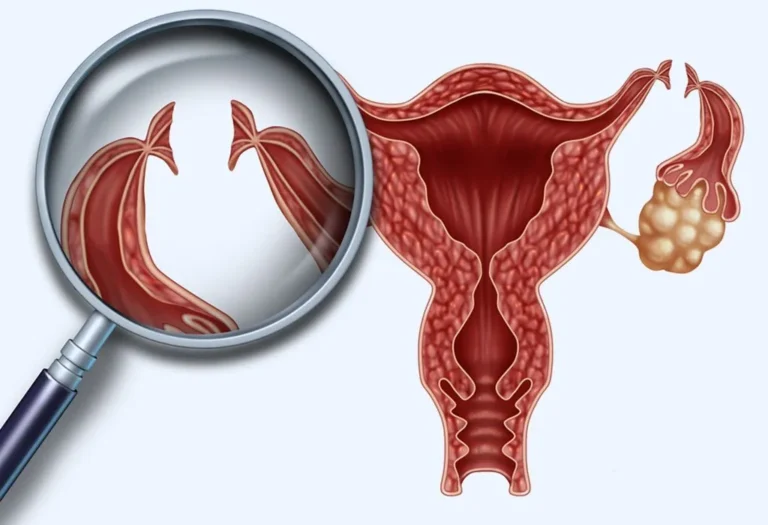The decision to surgically block or seal the fallopian tubes via tubal ligation is taken by many women. Either they do not consider any future pregnancies after delivering, or choose to avoid the responsibilities of parenting owing to their careers. However, life is full of unexpected twists and turns. Years later, the woman may develop a strong desire to become a mother. With the fallopian tubes blocked her desire can never be accomplished, at least that is what she thinks. The advent of tubal reversal surgery has made it possible in the present era. Tubal reversal surgery aims to repair or reconnect the fallopian tubes and restore fertility for the woman. To understand more on the subject you can visit this website: https://www.tubalreversalcenter.com.
Tubal reversal in-depth

Qualified and experienced surgeons are now practicing tubal reversal with great success. Although the procedure is very complex and involves reopening, unblocking, and reconnecting the fallopian tubes, modern technological advancements have made it possible. Despite tubal ligation being labeled as a permanent form of contraception, tubal reversal surgery has made it possible for women to become mothers again. Presently, the use of robotics and AI is also helping the success rates of surgery. For that reason, women who all of a sudden crave to conceive again, have an option in their hands.
Factors influencing success
Although tubal reversal brings a new ray of hope for women who after tubal ligation were feeling hopeless, the procedure may not be ideal for everyone. A wide array of factors can be responsible for attributing to the success of tubal reversal surgery. Let us take a look at them.
- Age of the woman: Anyone interested in undergoing tubal reversal surgery should have realistic expectations. Tubal reversal, by no means, is a magic procedure that can repair the fallopian tubes and make a woman fertile. Primarily, the age of the woman plays a crucial role in determining the success of the procedure. Generally, younger women will be more successful compared to the older women. The reason is quite simple. As women age, the ability of the ovaries to produce good-quality eggs declines, and it can affect the overall success of the procedure.
- The type of tubal ligation: Another vital factor is the way tubal ligation was conducted in the first place. If for example, tubal ligation uses clips or rings, chances of success after reversal increase. The abovementioned methods do not impact much damage to the fallopian tubes and thus can be healed. While methods like cutting or cauterization drastically reduce the chances of success after tubal reversal surgery.
- Length of healthy tubal segments: The surgeon needs to have enough healthy fallopian tube segments to work with. If the tubal ligation damages these segments extensively, the likelihood of success reduces. Longer segments offer more freedom to the surgeon as they get more space to work with during the reversal surgery. As a result, the success rates will also increase.
- The skill of the surgeon: Lastly, the expertise of the surgeon can play a determinant factor in the success of tubal reversal. A surgeon who possesses the necessary knowledge and experience can overcome potential challenges and ensure the surgery to completed successfully. Some of the challenges the surgeon can encounter are scar tissues and adhesions from the earlier tubal ligation surgery. Not everyone can overcome these hurdles and operate conveniently.
- Care after the surgery: Even if the tubal reversal surgery is completed successfully, the post-surgery care is equally significant. The woman must abide by the guidelines as mentioned by the surgeon. It involves taking the prescribed medicines on time, avoiding stressful acts, and keeping in mind all the protocols for quick recovery. The surgeon will constantly remain in touch with the patient to ensure she follows the rules and heals in a short period.
Success rates

By now, you have an idea of the factors influencing the success rates of tubal reversal surgery. Reports indicate the success rate varies within the range of 40% to 85%. Usually, success rates are calculated on the records of achieving pregnancy within the first year after the surgery. Still, not every woman will be successful in conceiving in the abovementioned time frame. It can vary from one woman to the other.
Based on the reports published by the American Pregnancy Association, women below the age of 30 are more successful in conceiving. The success rates of such women exceed more than 75%. Women above the age of 40 may not be as successful as their younger counterparts, indicating that age and health-related factors are of prime importance.
Additional factors determining success
Some other aspects are also significant in determining the success rates of tubal reversal surgery, and these are as follows:
- Cost: Tubal reversal being a complicated surgery can be expensive. From the initial screening to the surgery, a woman has to bear the burden of costs. Since insurance companies do not usually cover tubal reversal, arranging finances can become a challenge.
- Side effects: Although side effects of tubal reversal surgery are minimal, some women may experience adverse reactions. For example, a woman may develop scar tissue, or the surgical area may develop infections. In such cases, the woman needs additional treatment and it can affect the success rate post-surgery.

Make an informed decision
For any women, considering going for tubal reversal surgery, they should know about the pros and cons of the procedure at first. The best person to reveal there would be no other than a qualified surgeon. They must assess the case, and provide the woman with all the necessary information that matters. As mentioned before, not everyone can be eligible for tubal reversal surgery, if the surgeon diagnoses risks in it. Nevertheless, when a woman understands the risks and benefits, she can make the decision accordingly. Lastly, we reiterate, that a woman should not start building castles in the air, instead, she should have all the information at her fingertips that matters for a successful outcome or she can find other solutions like IVF.

